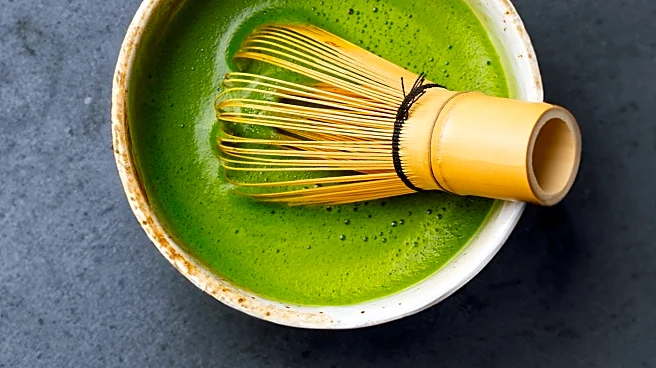What's Happening?
The global demand for matcha, a finely ground green tea powder, has surged, driven by its popularity as a health-conscious alternative to coffee. Retail sales of matcha powder in the U.S. have increased by 86% over the past three years. However, this
demand is straining traditional supply chains, particularly in Japan, where matcha is ceremonially produced. The rising popularity is attributed to factors such as caffeine anxiety, wellness trends, and the aesthetic appeal of matcha. As demand grows, supply challenges and market dynamics are leading to increased prices and the proliferation of non-authentic matcha products.
Why It's Important?
The matcha trend reflects broader shifts in consumer preferences towards health-focused and sustainable products. The increased demand is impacting traditional matcha producers in Japan, who face challenges such as climate change and an aging workforce. The market's lack of regulation has led to the sale of non-authentic matcha, raising concerns about product quality and cultural appropriation. This situation highlights the complexities of global food trends and the need for sustainable production practices to meet consumer demand without compromising cultural heritage.
Beyond the Headlines
The matcha phenomenon underscores the influence of social media and wellness culture in shaping consumer behavior. As matcha becomes a mainstream product, there is a risk of cultural dilution and misrepresentation. The trend also raises questions about the sustainability of agricultural practices and the ethical implications of global food supply chains. As consumers seek authentic and high-quality products, there may be increased pressure on producers to maintain traditional methods while adapting to modern market demands.
















